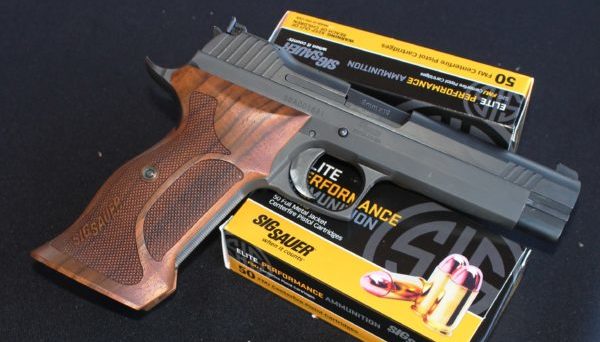
For the eighth straight year since its inception, revenue from the special tax on the sale of firearms and ammunition in Seattle, Wash., has fallen far short of the original predictions publicized in 2015, and this is only one failure of what critics contend is a “gun control tax.”
The tax was adopted to finance a “gun violence prevention” effort, and it has also failed at that. The tax was adopted hastily in the summer of 2015, with then-Councilman Tim Burgess predicting it would bring in somewhere between $300,000 and $500,000 annually.
The tax was challenged by gun rights organizations as a violation of the state’s firearms preemption statute, adopted in 1985. The State Supreme Court upheld the tax.
In 2016, the first full year the tax was collected, the Seattle Police Department reported 20 homicides and the tax brought in a disappointing $103,766, a figure the city was compelled to release by the court following a Public Records Act lawsuit filed by Gun Week, the precursor of TGM, which is owned by the Second Amendment Foundation, and its then-senior editor. SAF financially supported the lawsuit in King County Superior Court.
The following year (2017), tax revenue fell to $93,220 and the city reported 27 slayings, according to updated Seattle Police data.
In 2018, the tax return was a dismal $77,518, according to data supplied by the city to TheGunMag.com, which replaced GUN WEEK. That year, the homicide body count rose to 32, not all of which involved firearms, as is typical.
In 2019, revenue began climbing again, to a reported $85,352 and homicides climbed slightly to 36 for the year, according to SPD data.
Then in 2020—the year of the COVID-19 panic and urban rioting following the death of George Floyd while under restraint by police in Minneapolis—the city collected $184,836, thanks to a spike in gun and ammunition sales apparently fueled by concerns about public safety and the beginning of huge manpower losses to the SPD. The number of homicides also jumped to 53.
But in 2021, revenue fell back to $165,416 and the number of slayings in the city also declined to 43, and while the money began declining, the murders went back in the other direction.
In 2022, the city reported $134,322 in revenue from the gun and ammunition tax, while the number of killings rebounded upward to 54 for the year, according to SPD data checked Friday morning for accuracy.
As of Thursday, March 14, the city reported having collected $113,021. The story which got major attention, however, from local media—which has paid very little attention to the failure of the 2015 revenue forecast—Seattle logged what has become a disputed number of homicides. The body count may have gone as high as 73, while the Seattle Times reported 69, and on the SPD website, the number is at 64. The figure of 73 is found at the “X” (formerly Twitter) website Seattle Homicide, which is not affiliated with the SPD.
The disagreement stems from three specific cases, the most notorious having been the broad daylight brutal murder of a pregnant downtown businesswoman in June 2023. Not only did she die, but her unborn child also did not survive. One explanation is that the baby apparently was unable to draw an independent breath once outside of the mother’s womb.
Another disputed case involved the discovery of a human skull in Seattle’s Rainier Beach area, and apparently the victim had suffered some kind of violence. There were also the delayed deaths of two victims in previous years, one from stabbing and the other from being shot. Both victims died during 2023.
The “gun violence tax,” as it has been nicknamed, failed not only to raise the projected revenue, it also didn’t prevent the number of homicides in the city from tripling over the course of eight years.
What it did succeed at, and many people, including Alan Gottlieb, chairman of the Citizens Committee for the Right to Keep and Bear Arms based in Seattle’s neighboring city of Bellevue, is that it drove gun sales out of the city.
One of the city’s major firearms retailers initially moved his operation out of King County completely and north into Lynnwood, in neighboring Snohomish County. The other major retailer has referred its gun-buying customers to its store in Fife, located in neighboring Pierce County to the south.
While Seattle anti-gunners may believe they have scored some sort of moral victory, their action cost the city untold business tax revenues, while at the same time reinforcing the growing impression that Seattle has become something of a joke, at least within the firearms community.